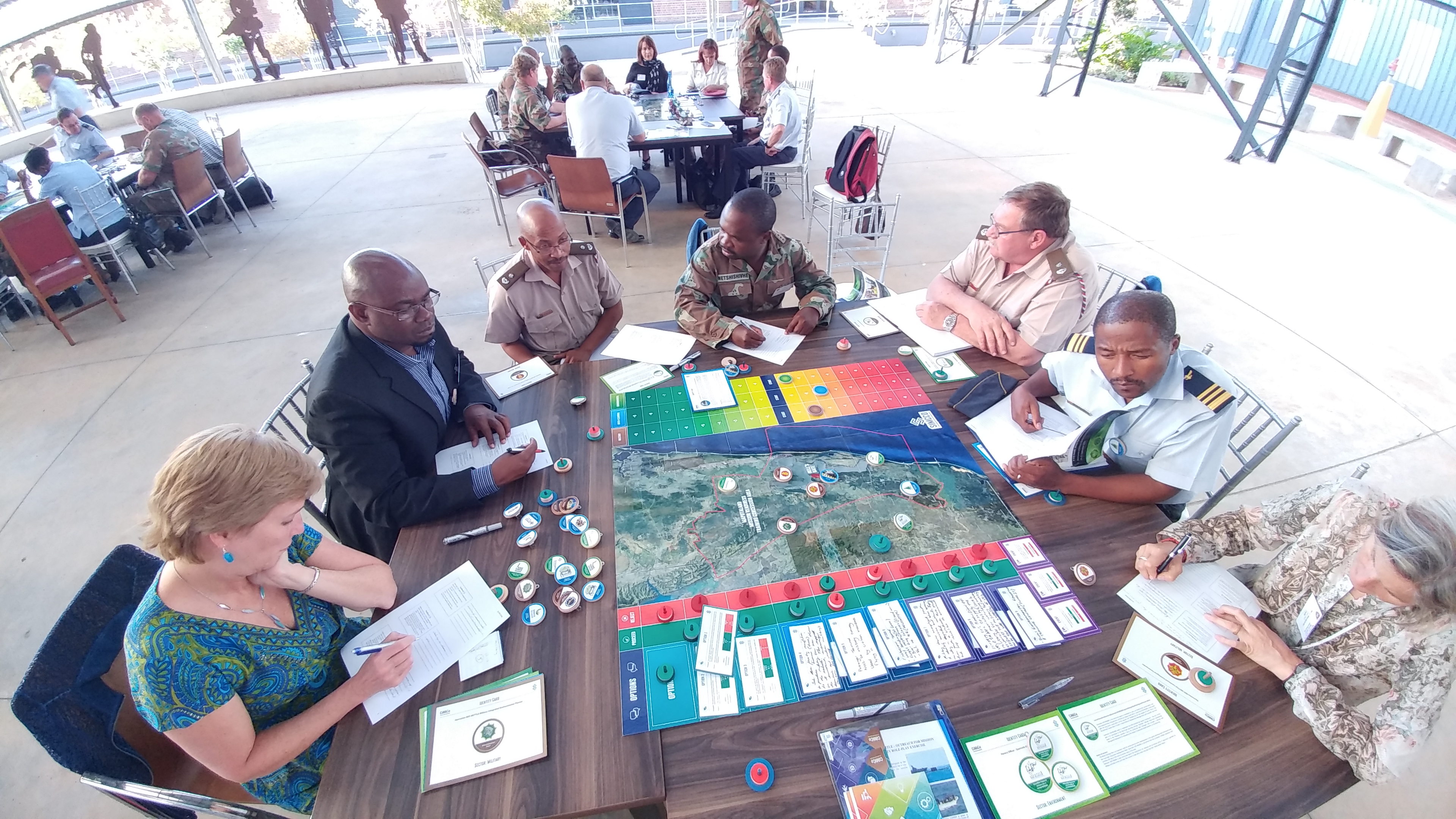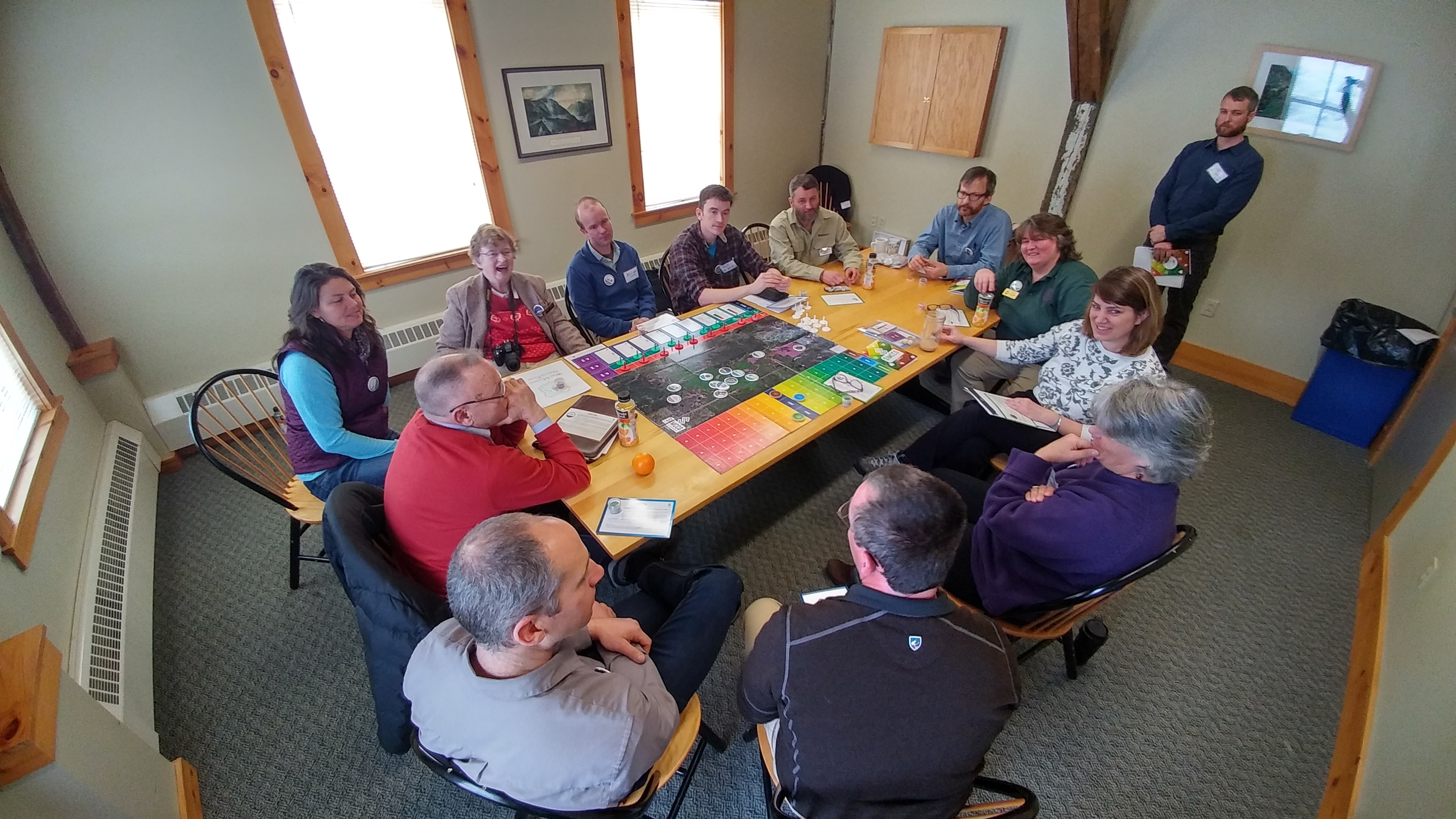The CSIR is using its expertise and technologies to help understand how environmental issues affect security, access to resources and development in Africa.
The organisation has partnered with universities and governments across Africa, as well as the U.S. Africa Command, which is responsible for the U.S. government’s interaction with Africa on various issues, including humanitarian aid, military support and environmental needs. Researchers host several knowledge-sharing events around the continent on topics such as water security, coastal vulnerability, wildlife trafficking and mission sustainability. The aim of these sessions is to attract and bring international and local experts together to find solutions for these challenges.
The CSIR’s simulation and cooperation board game (SIMCCO) has proven to be a great tool to facilitate these conversations at the various knowledge-sharing events. The gaming and simulation platform supports interactive and cooperative gaming through role play, where players reach an agreement based on various options related to any central issue. The game-play makes provision for role players to reflect on, discuss and vote on the options put forward by the other players. The outcome of these discussions is visually presented and the votes are represented as impact points in each sector.
CSIR principal researcher Marius Claassen says the sessions empower participants to handle problems posed by environmental issues and apply correct measures to manage the possible risks. The next knowledge-sharing event will focus on wildlife trafficking in Mozambique. Sub Saharan Africa has been the focal point of poaching which has been linked to funding criminal and extremist organisations.
The CSIR will bring together military, conservation and governmental organisations to prevent and manage what could be a potential conservation crises. Among other things, the researchers have demonstrated Cmore; an innovative shared awareness and integration platform that addresses the need for situation awareness and collaboration amongst users through the consolidation of information from various sensors and external systems as well as real-time analytics.
Similar events have been held in Senegal, where solutions to combat the effects of climate change in that country were discussed. A regional meeting in East Africa saw Ethiopia and Uganda apply solutions gained from the event to curb the pressure on water security. SIMCCO has been used to develop capabilities in mission sustainability in the South African National Defence Force and to support forest management by the US Forest Service in New Hampshire.
CSIR senior researcher Karen Nortje adds that what makes these sessions unique is that the topics are suggested by the hosts. “It’s an opportunity for Africans to come together to find home grown solutions that work for them,” she says.

at the White Mountain National Forest in New Hampshire, USA.
